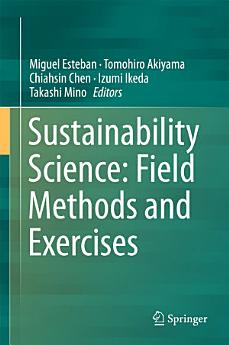Sustainability Science: Field Methods and Exercises
Miguel Esteban · Tomohiro Akiyama · Chiahsin Chen · Izumi Ikeda · Takashi Mino
ก.ค. 2016 · Springer
eBook
243
หน้า
reportคะแนนและรีวิวไม่ได้รับการตรวจสอบยืนยัน ดูข้อมูลเพิ่มเติม
เกี่ยวกับ eBook เล่มนี้
This book builds up on the experience and lessons learnt by academics at the Graduate Program in Sustainability Science, Global Leadership Initiative (GPSS-GLI) at the University of Tokyo. A number of scholars in the new field of sustainability science describe how field methods and exercises are carried out in this discipline, together with the theoretical basis for such exercises. Case studies of various countries around the world where these exercises are carried out are showcased, emphasizing the various socio-economic considerations and problems facing humanity and possible ways forward to build more sustainable and resilient societies. The final objective is to enrich the field of sustainability science by describing the novel aspects used in the field exercises carried out by practitioners of this cross-disciplinary field.
ให้คะแนน eBook นี้
แสดงความเห็นของคุณให้เรารับรู้
ข้อมูลในการอ่าน
สมาร์ทโฟนและแท็บเล็ต
ติดตั้งแอป Google Play Books สำหรับ Android และ iPad/iPhone แอปจะซิงค์โดยอัตโนมัติกับบัญชีของคุณ และช่วยให้คุณอ่านแบบออนไลน์หรือออฟไลน์ได้ทุกที่
แล็ปท็อปและคอมพิวเตอร์
คุณฟังหนังสือเสียงที่ซื้อจาก Google Play โดยใช้เว็บเบราว์เซอร์ในคอมพิวเตอร์ได้
eReader และอุปกรณ์อื่นๆ
หากต้องการอ่านบนอุปกรณ์ e-ink เช่น Kobo eReader คุณจะต้องดาวน์โหลดและโอนไฟล์ไปยังอุปกรณ์ของคุณ โปรดทำตามวิธีการอย่างละเอียดในศูนย์ช่วยเหลือเพื่อโอนไฟล์ไปยัง eReader ที่รองรับ





